Manitoba maple
Manitoba maple - Acer negundo
Also known as the box-elder, this is our only native maple that has compound leaves. These maples only grow to about 20 m but they grow quickly. Their range in Ontario is expanding as Manitoba maples are adaptable and resilient, often found in disturbed areas and along rivers and streams. They are known to have rather weak branches that tend to break during severe storms.
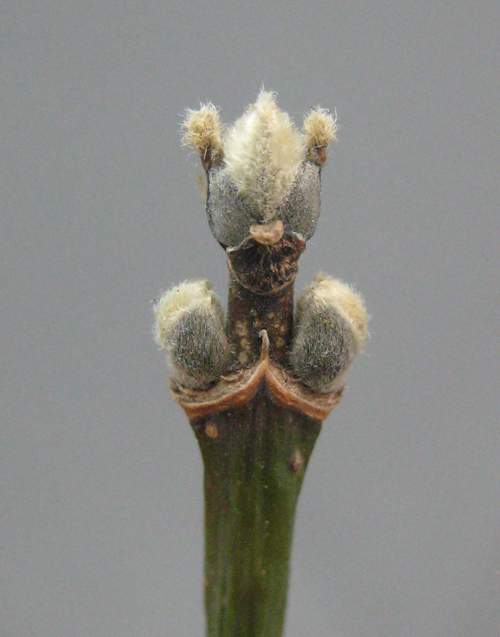
Manitoba maples have round, hariy buds. Photo by Brian Lacey.
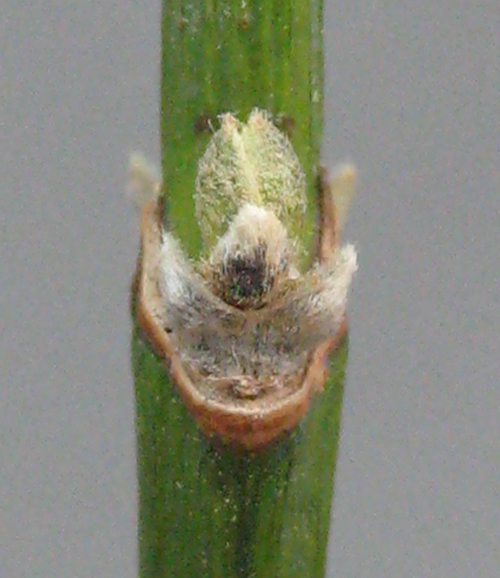
Lateral bud. Photo by Brian Lacey.
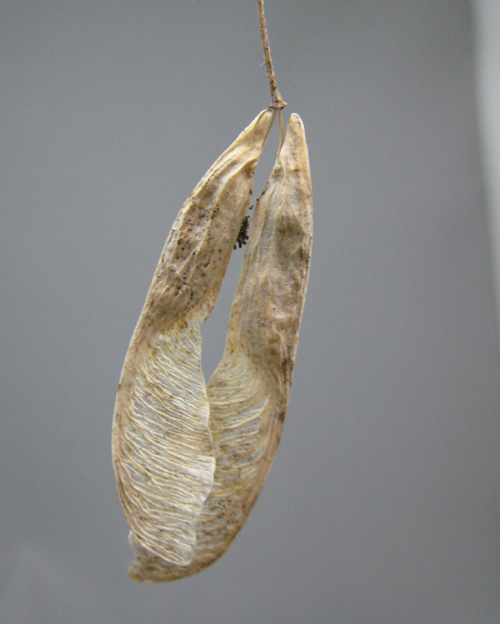
Manitoba maple keys are very important winter food sources for small mammals and birds. Photo by Brian Lacey.
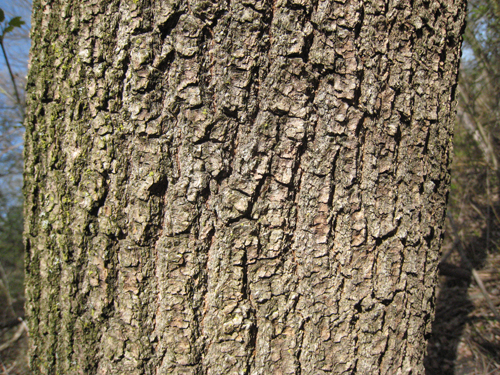
The mature bark is ridged. Photo by Brian Lacey.
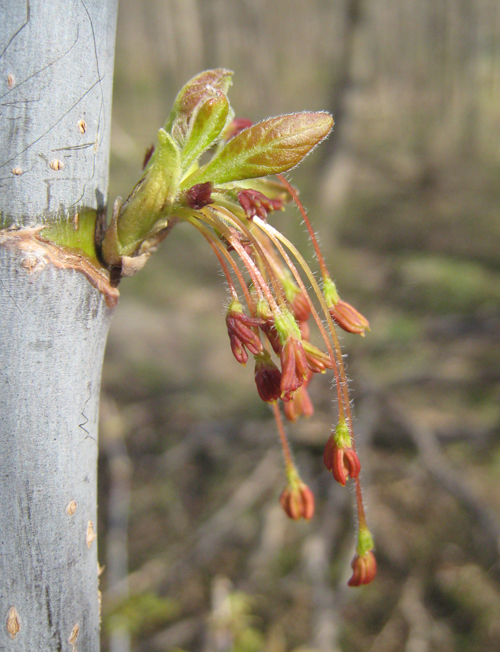
Manitoba maple flowers. Photo by Brian Lacey.
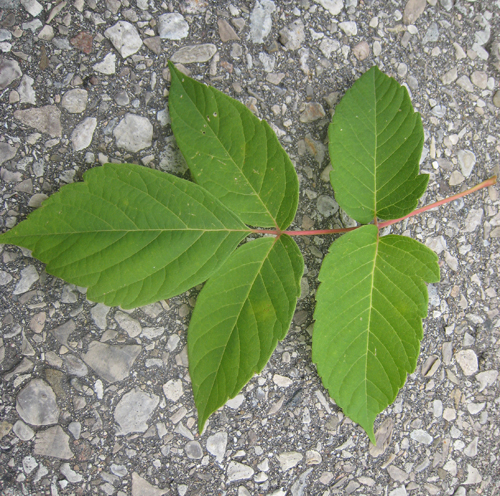
Manitoba maple leaves typically have 5-7 leaflets but can have 3 or 9. Photo by Brian Lacey.
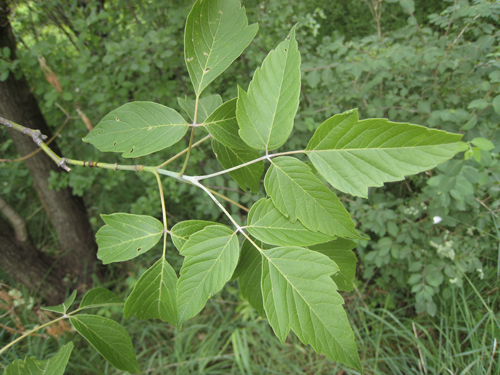
These leaves only have 3 leaflets. Photo by Brian Lacey.
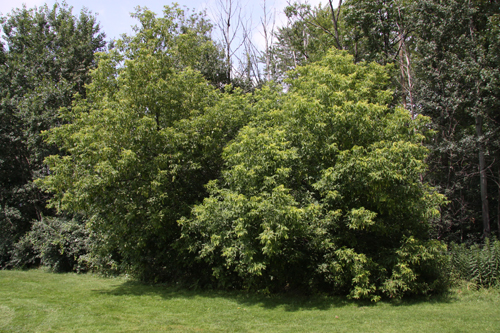
This maple often has a sprawling form, with low branches. Photo by Robert Hall.
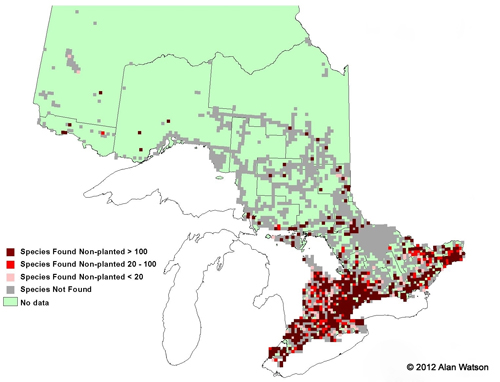
Ontario Tree Atlas map of non-planted Manitoba Maples. 1995-1999.
References
Farrar, J.L.. 1995. Trees in Canada. Fitzhenry & Whiteside Ltd. Toronto. ON. 504 pp.
Kershaw, L. 2001. Trees in Ontario: Including tall shrubs. Lone Pine Publishing. Edmonton. AB. 240 pp
Muma, W. 2011. Ontario Trees and Shrubs. [Online] Available: www.ontariotrees.com
OMNR, 2011. Ontario Ministry of Natural Resources: Ontario Tree Atlas. [Online] Available: http://www.mnr.gov.on.ca/en/Business/ClimateChange/2ColumnSubPage/267027.html
OMNR, 2008. Ontario’s Biodiversity: Species at Risk.